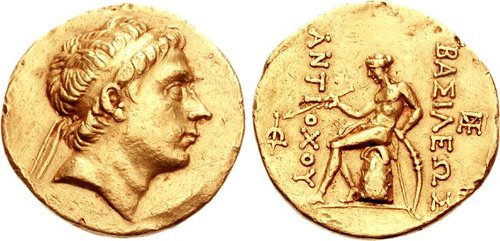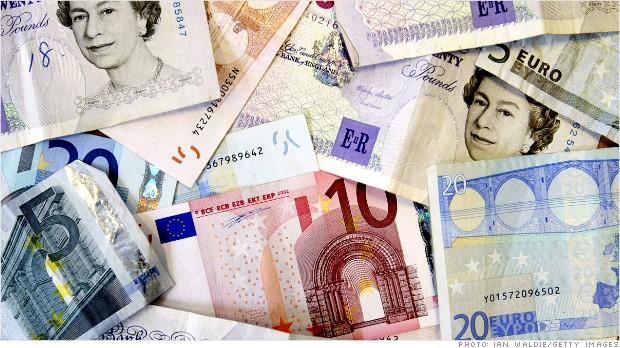
-
The smiling Guru pictured above, a Hero of film, television, countless books, eulogies, elegies, newspaper and magazine articles, is certainly responsible, more than any other human, for the degradation of the Modern Mind - and the destruction of American Youth.
My daughter is 12. She used to read for hours. For fun. I kept her away from video games and extended exposure to the Idiot Box. She loves - or loved - to read. She says she still does.
But because of the Satanist pictured above, she now has access to a tiny little delivery device that promises to addle her mind, and is very hard for a parent to police.
Her phone is certainly the most effective brain addling tool ever invented. All thanks to the Evil Bastard pictured above. I hope he rots in hell. Because my poor daughter no longer needs permission to watch the idiot box or play on her computer. Her Mind Numbing Device is portable, tiny, and impossible to monitor for a parent. Good job, Steve Jobs, you're destroyed the youth of America. And America loves you for it.
These were the hottest sellers this black Friday:
The
combination of ancient adventure and easy gameplay turned Temple Run 2
in another popular game among Android users. You can cross great
distances and can easily overcome various obstacles in the temple to
achieve your goals, and in the new version you have available new types
of power-ups and obstacles. However, the difficulty increases gradually
until you might be tempted to pay to use the skills with which help you
to get to the next level.
It
is no surprise that a racing game occupies a leading position among the
most popular Android games and the Fast & Furious game has earned a
reputation for good part of the film series of the same name. The
action takes place on the streets of London, where you have the mission
to earn a reputation in various races, but also to end the domination of
a criminal organization composed of trained mercenaries. As you advance
in the “career” to unlock cars, they are becoming more powerful in
order to get into a position to make it faster.
Real Racing 3 for Android
Pure
car Games could not miss from this article, especially if they are
free. Real Racing 3 especially impresses by the graphics and the actual
selection of cars and tracks. For example, you can climb behind the
wheel of official Porsche, Lamborghini, Dodge, Bugatti and Audi cars,
and you can try out your skills on circuits that have become legendary
in the world of motorsports, such as Spa-Francorchamps, Silverstone,
Laguna Seca or Hockenheim. However, to avoid long waiting times for
repairing cars or buy new ones faster and stronger you have to pay real
money and this limits somehow the enjoyable game experience.
Fruit
Ninja is another popular intuitive game for Android where speed of
response is the most important skill to progress rapidly. As the name
implies, the game requires you to cut various fruits that appear in the
landscape in a short time. There are three game types, namely Classic,
Zen and Arcade, and a bonus Dojo section which includes new types of
swords, the game environments and power-ups.
We
stay in the racing car domain, but this time choosing a less common
adventure, because, as the name suggests, Hill Climb Racing puts you in
the shoes of a driver who should go with his car over the hills. You
have 10 vehicles, from classic cars to trucks and tanks, and in the
process you have to collect coins in order to improve their performance.
The objective is to go through the 11 levels of the game that will
carry on country roads from the desert to the Arctic ice to
finally reach the moon!
I
could not write this article about popular Android games without
mentioning Angry Birds, probably the first successful game for Android.
With a simple and intuitive graphics, the game throws you into a world
where you have to kill pigs using a slingshot to catapult birds. Sure,
as you get to higher levels you will encounter various birds and
obstacles, and if you get bored you can try many other games in the
Angry Birds series, of which we mention here only Angry Birds Space,
Angry Birds Rio, Angry Birds Star Wars or Angry Birds Friends.
The
subway is my preferred ride, so it is not surprising to me, as the
other 50 million users liked Subway Surfers. In this popular Android
game you aim to run the metro network in various cities of the world
(including Beijing) to earn coins to improve skills and, especially, to
escape the pursuit of an inspector and his dog that will give you
permanent headaches. Are you ready for adventure?
FIFA
Soccer Games and Football Manager Handheld type are quite costly, which
is why Top Eleven has earned a good reputation because it is free
Android game. Even if doesn’t excel in graphics, Top Eleven Football
Manager is a complex game, you have to take care of your own team: doing
exercises, setting strategies, upgraded stadium and managing budgets.
But perhaps the main advantage is that you play against real players in
various competitions that mimic the Champions League, a national
championship and cup.
Cut the Rope – Time Travel for Android
[video ]http://www.youtube.com/watch?v=aEWputinvRA[/video]
Trivial
as it sounds to cut a rope, it has proved a popular game. In this game
version you will travel to the Middle Ages, the Renaissance, Ancient
Egypt, Ancient Greece, the Stone Age and you can be a pirate on a ship,
but your goal remains the same: to feed two monsters with sweets.
RetailMeNot (available for Android, iPhone): This app lets you
search for coupons from your favorite stores, so you can instantly save
10 percent, 20 percent or even more on a single item or your entire
shopping cart. You can scroll through the list of hot deals on the home
page or search for a specific store.
- Amazon and RedLaser
(available for Android, iPhone, Windows): These two apps let you check
prices online, for those retailers that will match cheaper prices you
find in hopes you'll buy on the spot.
- Cartwheel by Target
(available for Android, iPhone): Target's app has coupons for everything
from electronics to toys to cereal. Once you find a coupon you want to
use, you tap the add button. Then present the cashier with a single
barcode that has collected all the coupons you selected.
- Flipp
(available for iPhone): This app helps you find and track newspaper
circulars. You can leave the paper behind, as Flipp has digital versions
with the coupons in them.



 For example, who might this be? It doesn't look much like Alexander. Yet the fine style clearly suggests a specific individual. Could it be Lysimchos? Or could it be Lysimchos' features conflated with those of Alexander. It's certainly fun to speculate.
For example, who might this be? It doesn't look much like Alexander. Yet the fine style clearly suggests a specific individual. Could it be Lysimchos? Or could it be Lysimchos' features conflated with those of Alexander. It's certainly fun to speculate.
















 9 Comments
9 Comments



